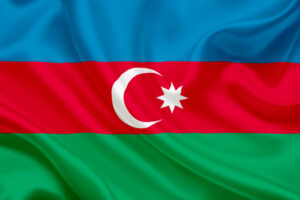
Most Ukrainians have a positive opinion of Azerbaijan, according to the results of a survey conducted by Active Group in collaboration with the Experts Club think tank.
According to the study, 56.7% of Ukrainians expressed a positive attitude toward Azerbaijan, of which 15.3% were completely positive and 41.3% were mostly positive. Only 5.7% of respondents expressed a negative attitude (1.0% completely negative, 4.7% mostly negative). A neutral position was taken by 36.3% of respondents, while another 1.3% said they were not familiar with the country.
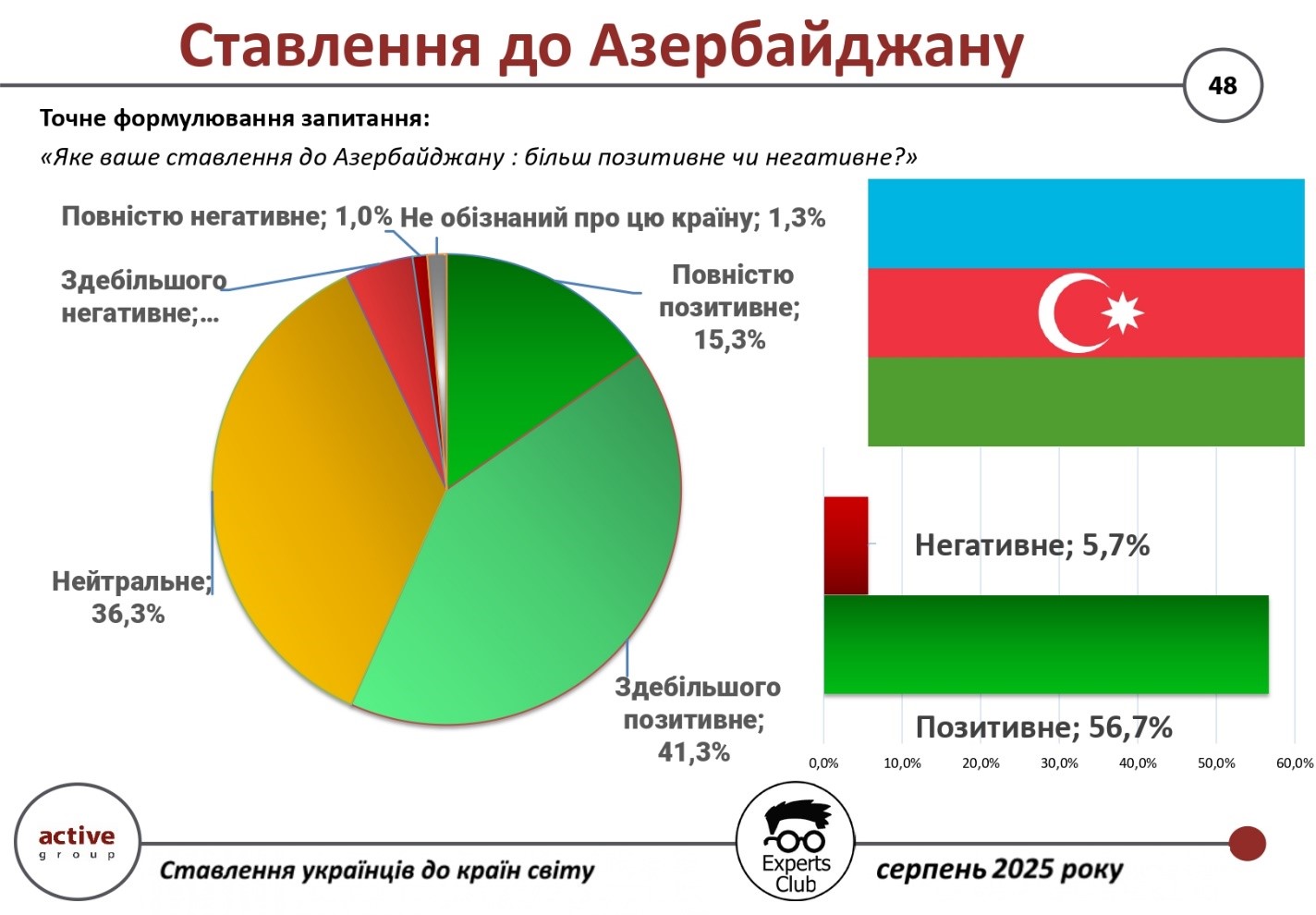
“Ukrainians have a favorable attitude toward Azerbaijan, given the close cultural and historical ties, as well as active cooperation in the energy and transport sectors,” emphasized Alexander Pozniy, head of Active Group.
In turn, Experts Club co-founder Maxim Urakin stressed the importance of trade and economic cooperation, which has continued to develop rapidly in recent years.
“According to the results of the first months of 2025, trade turnover between Ukraine and Azerbaijan amounted to $237.9 million. Ukrainian exports reached $110.3 million, while imports amounted to $127.6 million. The negative balance amounted to $17.3 million, which is relatively small compared to other countries, but confirms the activity of mutual trade flows.”
Thus, Azerbaijan remains a reliable partner of Ukraine in both social and economic terms, and the level of trust among Ukrainians remains high.
The full video can be viewed at: https://www.youtube.com/watch?v=YgC9TPnMoMI&t
You can subscribe to the Experts Club YouTube channel here: https://www.youtube.com/@ExpertsClub
ACTIVE GROUP, AZERBAIJAN, EXPERTS CLUB, Pozniy, SOCIOLOGY, TRADE, UKRAINE, УРАКИН
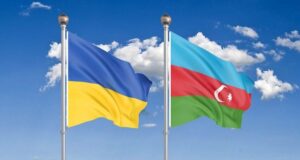
The Cabinet of Ministers of Ukraine intends to reach an agreement with Azerbaijan on the construction of a cultural center, a children’s and youth sports school, and an arts center in Irpin, Kyiv region.
According to Order No. 973 of September 10, the government has formed a delegation to participate in negotiations with the delegation of the government of the Republic of Azerbaijan on the preparation of the text of a draft agreement on the construction of a cultural center, a children’s and youth sports school, an arts center, and a residential building in Irpin.
Deputy Minister of Community and Territorial Development Marina Denisyuk has been appointed head of the delegation.
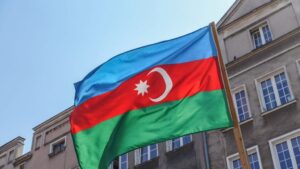
Ukraine received a new batch of humanitarian aid from Azerbaijan to restore energy infrastructure damaged during the armed conflict, according to Ukrainian and Azerbaijani press services.
The aid consists of the supply of electrical equipment worth $2 million, approved by a decree of the President of the Republic of Azerbaijan, Ilham Aliyev, dated August 11, 2025, with funds from the presidential reserve fund and the 2025 state budget. The equipment includes generators, transformers, and electrical cables manufactured in Azerbaijan.
The first batch of aid — about 10 trucks sent from the Sumgait Technology Park — contains about 90,000 meters of electrical cables, 25 generators, and seven sets of transformers. They are intended to restore stable power supply in regions of Ukraine destroyed by Russian strikes.
Ukrainian President Volodymyr Zelensky and Azerbaijani President Ilham Aliyev discussed energy cooperation and interaction with the US and European partners during a telephone conversation on August 10. The parties emphasized that the assistance is based on the principles of humanism and partnership enshrined in bilateral agreements, including the 2000 Treaty on Friendship, Cooperation, and Partnership and the 2008 Declaration on Strategic Partnership.
Diplomatic relations between Ukraine and the Republic of Azerbaijan were established on February 6, 1992, when Azerbaijan officially recognized Ukraine’s independence. The Ukrainian Embassy in Baku began operating in 1996, and the Azerbaijani Embassy in Kyiv in 1997.

India has again opposed the expansion of the Shanghai Cooperation Organization (SCO), rejecting Azerbaijan’s application for full membership. This was reported by AnewZ, citing diplomatic sources cited by the media. X (formerly Twitter)+14EADaily+14Report.az+14
On the other hand, Pakistan has so far refrained from supporting Armenia’s accession to the SCO. Pakistan’s geopolitical ties with Azerbaijan, as well as its historical positions in the conflicts of the region can become an obstacle in Yerevan’s way.
The Shanghai Cooperation Organization is an intergovernmental regional bloc founded in 2001 in Shanghai. Now it has 10 full members: China, Russia, Kazakhstan, Kyrgyzstan, Tajikistan, Uzbekistan, India, Pakistan, Iran and Belarus.
In 2025, Armenia and Azerbaijan applied for full SCO membership status (previously they were observers or dialog partners). Their ratification requires the approval of all current members.
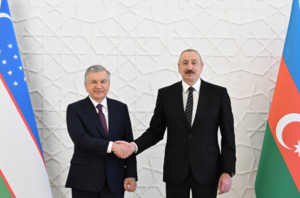
Azerbaijan’s state oil company SOCAR has begun developing an oil field in Uzbekistan. This was announced by Azerbaijani President Ilham Aliyev on August 22 at a trilateral meeting with the President of Uzbekistan and the Chairman of the Halk Maslahaty of Turkmenistan in Turkmenbashi.
“We have traditional energy cooperation with Turkmenistan. We have already entered this field with Uzbekistan. Our state oil company SOCAR has already begun developing an oil field in Uzbekistan, and the contract has already been signed,“ Aliyev said.
According to him, Azerbaijan expects to receive ”good news” about the results of the work within the next year or two. “We are all eagerly awaiting news about the discovery of a large oil field in Uzbekistan,” he said.
On July 24, Uzbekistan and the Azerbaijani state-owned company SOCAR signed a production sharing agreement (PSA) for the Ustyurt Plateau.
Investments in the project are estimated at $2 billion. Over the next five years, SOCAR, which is the project operator, will conduct 3D seismic surveys covering an area of at least 1,000 square kilometers and drill at least one exploration well. If a commercial field is discovered, the parties will proceed with its development. Reserves are estimated at up to 100 million tons of oil and 35 billion cubic meters of gas.
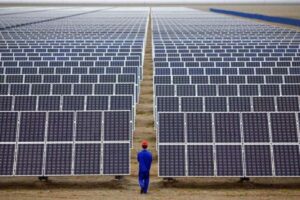
Masdar (UAE) has begun construction of Azerbaijan’s largest solar power plant with a capacity of 445 MW.
“As part of the project implemented by Masdar, the installation of the first solar panel support for the Bilasuvar solar power plant and construction work in general began on August 12,” according to a statement on the official social media page of the Bilasuvar district administration (in the south of the country). An area of 1,454 hectares has been allocated for the construction of the plant.
“The Bilasuvar solar power plant will make an important contribution to increasing renewable energy production in the country, increasing the share of clean energy in the energy balance, and developing a green energy policy,” the statement said.
As reported, the groundbreaking ceremony for the 445 MW Bilasuvar and 315 MW Neftchala solar power plants took place during Baku Energy Week in June 2024. Both plants are scheduled to be commissioned in 2027.
Once completed, the two solar power plants are expected to generate around 1.7 billion kWh of electricity per year. Their launch will also reduce carbon dioxide emissions by approximately 830 million tons per year and lead to annual savings of 380 million cubic meters of natural gas. The total cost of the solar power plants is estimated at $670 million. These projects are being implemented by Masdar in cooperation with SOCAR Green (a subsidiary of the State Oil Company of Azerbaijan, SOCAR). SOCAR Green’s share in each of the projects is 25%. The Bilasuvar plant will generate 897 million kWh of electricity per year, supplying power to 179,000 consumers (homes) and saving 193 million cubic meters of gas annually.